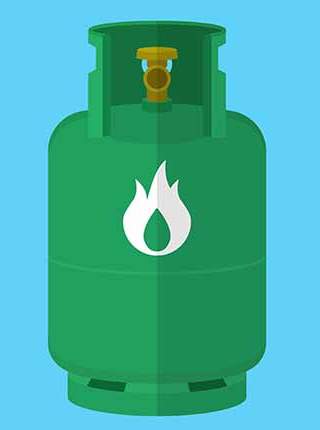Scientists back propane in heat pumps
March 20, 2023

More than 40 scientists from across Europe have signed a position statement backing what they say is the proven superior efficiencies of hydrocarbon refrigerants in heat pumps.
The scientists from 24 different European universities and research institutes argue that hydrocarbons, like propane and isobutane, are “just as good, or better,” than the HFCs and HFOs now under threat from the F-gas revision and PFAS ban proposals.
The Position Paper has been sent to members of the European Parliament’s Committee on Environment, Public Health and Food Safety (ENVI) and to all Swedish EU MPs in advance of the F-gas revision vote at the end of this month. The group is led by researchers from Sweden’s KTH Royal Institute of Technology, together with researchers at Germany’s Fraunhofer Institute.
“The favourable thermodynamic and transport properties of propane and other hydrocarbons make them very well suited as refrigerants,” the statement says. “Based on the properties, they can be expected to provide low pressure drops and a system efficiency as high, or even higher, than synthetic alternatives. Their superiority is not only theoretically proven but is also supported by system efficiency comparisons carried out by using thousands of product data for systems from almost the entire EU market, which use either propane or other refrigerants.”
Industry has warned that the current F-gas revision proposals present an unrealistic timeline for phase out, risk equipment safety and efficiency, seriously impact the necessary accelerated heat pump roll out and jeopardise the EU’s REPowerEU objectives. Concerns have also been raised about the shortage of engineers properly trained to work with flammable refrigerants.
Safety standards
The scientists accept the highly flammable nature of hydrocarbon refrigerants and recognise that special safety precautions must be considered in the design, during service and in the factories where the heat pumps are manufactured.
They insist, however, that international safety standards are already in place and are constantly being improved.
“New standards will most probably allow a wider use of hydrocarbon refrigerants, as more detailed safety precautions are being developed,” they state. They also point to recent work carried out by the Fraunhofer Institute to reduce the refrigerant charge per kW heating capacity in heat pumps.
Availability
In terms of product availability, the scientists claim that several hundred designs of hydrocarbon heat pumps from about 48 different manufacturers are already commercially available in Europe and many manufacturers in Europe are already working on new heat pump designs with propane as the refrigerant.
“Going from non-flammable synthetic refrigerants to flammable hydrocarbons requires careful consideration of the safety, both at the production sites and for the products,” they say, adding: “A similar transition was made about 30 years ago, when the whole refrigerator industry switched from using R12 to isobutane in a time frame of 3-5 years.”
“Based on this background, a transition time to propane for outdoor installations of 3-5 years and for indoor heat pump of 3-8 years seems to be realistic, depending on the different applications and capacity ranges.”
The group accept, however, that the change to propane for indoor heat pumps is “still challenging” and will probably require more than three years, due to complex safety regulations and building requirements.
“Therefore, we argue for the early announcement of clear and ambitious fade-out dates of synthetic refrigerants, taking different development time spans for different product classes (indoor/ outdoor/ monobloc/ split/multi-split/VRF) and application areas (residential/commercial/industrial) into account.”


